Australian cities taking action – webinar on Wednesday
Learn how participating cities can publish their nature and biodiversity commitments and progress on the CitiesWithNature Action Platform, share their journey with other cities, and use the Action Platform to generate reports and inform decision making in their own council and community.
Join leading Australian cities at this webinar hosted by ICLEI Oceania to learn more about their nature work and for a demonstration of the new CitiesWithNature Action Platform.
Wednesday 6 April at 4pm – 5:15pm AEST
Virtual Zoom Event
Register free here.
This webinar will demonstrate how to use the Platform and feature some updates from several cities in preparation for populating the Action Platform.
Speakers will include:
– Cr Amanda Stone, Councillor, Yarra City Council, Melbourne
– ICLEI Cities Biodiversity Centre
– Melbourne
– West Torrens
– Wollongong
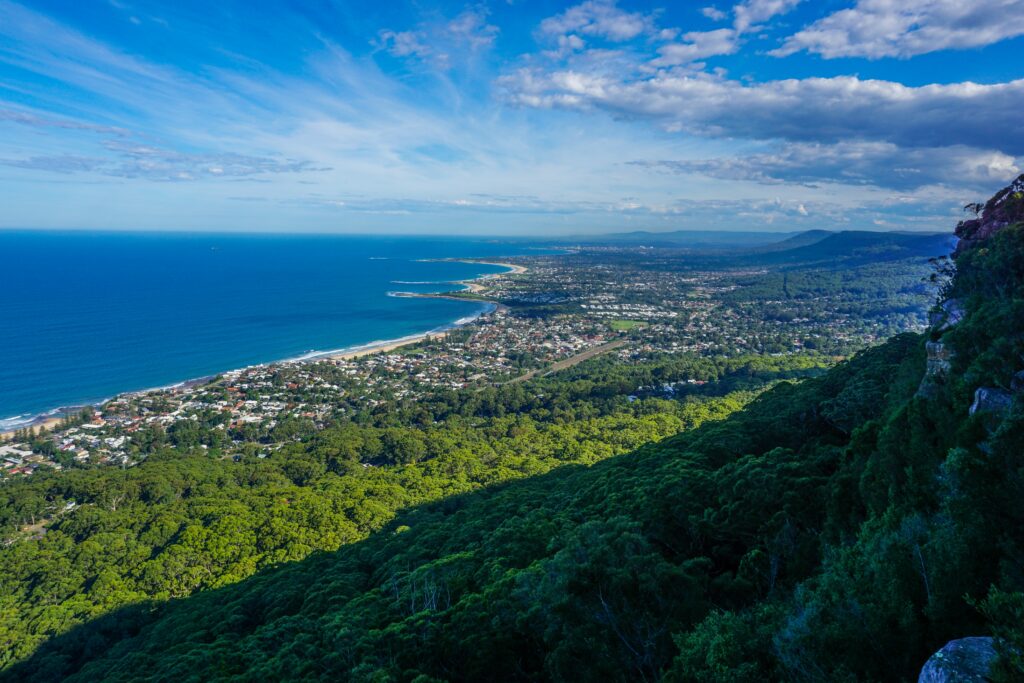
Sublime Point Lookout, Maddens Plains, near Wollongong, Australia. Image credit: https://unsplash.com/photos/0v7BeBsQhCY
Why should cities commit and take action for nature on the CitiesWithNature Action Platform?
Why do we need nature to make our cities more sustainable and resilient?
- By 2050, two thirds of people will live in urban areas.
- People depend on healthy ecosystems for food, livelihoods, health and wellbeing.
- By integrating nature into our cities, we enhance community resilience to global challenges like climate change, and enable people and biodiversity to thrive.
- There is a growing urgency for collective and large-scale action to protect the biodiversity in and around cities to prevent irreversible loss and damage to the natural systems we depend on.
- Now more than ever, we must unite and embrace nature, reconnect communities with nature, and become CitiesWithNature!
Why are the world’s biodiversity goals important for cities?
- Through the United Nations Convention on Biological Diversity (UN CBD), countries commit to a new and ambitious blueprint, the post-2020 global biodiversity framework (GBF), to guide actions for protecting nature and its vital contributions to people.
- The GBF has a whole-of-government approach and recognizes that cities and subnational governments are key to its successful implementation.
- In the 2030 Action Targets, the GBF sets out clear targets for urgent actions we must take in the next decade, so that people may live in harmony with nature and thrive.
How can CitiesWithNature help cities to thrive with nature?
- CitiesWithNature is a unique initiative that recognizes and enhances the value of nature in and around cities across the world.
- Its platform enables cities to connect, share their experiences and actions, and benefit from access to many partner organizations, best practices, resources and practical tools.
- CitiesWithNature and its Action Platform are recognized by the Convention on Biological Diversity (CBD) in the Plan of Action on Subnational Governments, Cities and Other Local Authorities for Biodiversity (2021-2030).
- The CitiesWithNature Action Platform complements the CBD’s Sharm-el Sheikh to Kunming Action Agenda for Nature and People.
- The Action Platform also links with the Commitments for Nature platform of the UN Environment Programme World Conservation Monitoring Centre, which gathers area-based commitments.
What contribution can cities make?
- Cities are where most people live, where new ideas germinate, where most of the consumption that threatens nature takes place, and where many decisions are made, reaching far beyond the city limits.
- Local and subnational governments have direct contact with the people who live in their cities, allowing for more concrete and strategic action on the ground.
- Local and subnational governments have the power to integrate nature into the way cities work.
- They can do this through policy reform, advocacy, investment, and on-the-ground interventions.
- They can do this for land use and urban development planning; infrastructure development and maintenance; management of consumption including agriculture, water and industry; resource mobilization; and urban response to disasters and risks – ultimately improving health and wellbeing.
- 2030 Action Targets, the GBF sets out clear targets for urgent actions we must take in the next decade, so that people may live in harmony with nature and thrive.
What is the Action Platform?
- The CBD recognizes the CitiesWithNature Action Platform in its Plan of Action on Subnational Governments, Cities and Other Local Authorities for Biodiversity (2021-2030 as the place where cities will monitor and report on their voluntary commitments to national and global biodiversity targets.
- Through the Action Platform, cities can showcase their actions and plans, understand how they contribute to global nature goals and easily track their achievements.
- The Action Platform translates the post 2020 global biodiversity framework into commitments that cities and regions are willing to make, taking specific actions under the commitments and setting targets for a particular action most relevant to the city’s local context.
- It has 3 action areas that align with the categories of the CBD 2030 Action Targets: to protect and restore nature; use nature sustainably; and develop tools and solutions.
- , the GBF sets out clear targets for urgent actions we must take in the next decade, so that people may live in harmony with nature and thrive.
How cities can make their mark through the Action Platform
Level 1: Make a COMMITMENT
- A city can show its commitment to take action on specific topics such as nature areas, recycling and access to parks.
- All commitments are voluntary but will contribute towards achieving global and national targets for protecting and restoring nature.
- After making commitments, cities can move on to the next step: Taking specific actions and setting specific targets aligned with their local and regional context and priorities.
Level 2: Take specific ACTIONS to achieve a commitment
- After making a particular commitment, a city can identify what actions they will take to achieve it.
- For example, after committing to “Protect, connect and restore ecosystems”, a city can specify how it will achieve this by taking actions such as “Increase protected areas” or “Restore degraded areas.”
- These actions should align with the city’s biodiversity plans, policies and strategic direction, as well as subnational and national biodiversity strategies and action plans.
- They should be implemented at the city’s pace, considering capacity and resources.
Level 3: Set specific TARGETS to monitor progress
- After making a commitment, and identifying the actions to be taken, cities can then set targets to track their progress.
- For each action, a city can set a specific target for what it wants to achieve by 2030. For example, “By 2030, protected areas will cover 4% of the city’s jurisdiction.”
- For each target, a city must also set a baseline. For example, “Currently protected areas cover 2% of the city’s jurisdiction.”
Linking the three levels of the Action Platform
- Commitments, actions and targets are the three levels of the Action Platform geared to help you in your journey towards achieving sustainability goals. For example:
- Commitment: Our city commits to protect, connect and restore ecosystems.
- Action: We will achieve this commitment by taking the action of increasing protected areas in our city.
- Target: By 2030, protected areas will cover 4% of the city.
Calling all cities to take action!
- By using the Action Platform, cities can inspire each other and show the world what actions they are taking for nature and people. They can monitor and track their progress, and see how their actions compare with other cities in their country, region or continent.
- The Action Platform also helps cities to gather information to feed into their countries’ National Biodiversity Strategies and Action Plans. This helps their countries to achieve national priorities and simplify their reporting to the UN CBD.
- Join CitiesWithNature and use the Action Platform to unite with other cities around the world – to ensure healthier, happier and safer cities for a nature-positive future.
CitiesWithNature Action Platform launch on Earth Hour 2022: Support from partners
NEW #CitiesWithNature Action Platform aims to accelerate action by cities #ForNature, launching this #EarthHour💚@ICLEI @IUCN & @nature_org are inviting all #cities to join and share their achievements🏙️🌳https://t.co/WRMpqAtnXg pic.twitter.com/ENy9Fp08CR
— ipbes (@IPBES) March 25, 2022
The new #CitiesWithNature Action Platform aims to accelerate action by cities #ForNature 🌏🏙️
— Global Environment Facility (GEF) (@theGEF) March 28, 2022
The platform has 3 action areas: 1️⃣ protect & restore nature, 2️⃣ use nature sustainably, 3️⃣ develop tools and solutions.
📗https://t.co/CotRJIT6KE
via: @ICLEI @IUCN @nature_org pic.twitter.com/aoMVtw5v9l
The #CitiesWithNature Action Platform accelerates bold ACTION by cities #ForNature, launching #TODAY @ #EarthHour🌍💡
— Cities Alliance (@CitiesAlliance) March 26, 2022
Calling all #cities to join, commit & share their achievements! ⏬https://t.co/ImevaPnqIV@earthhour @ICLEI @IUCN @nature_org @UNBiodiversity @CitiesWNature🌱 pic.twitter.com/7vnFBAi8lf
Why should cities commit & take action for nature on the #CitiesWithNature Action Platform this #EarthHour?
— ICLEI (@ICLEI) March 26, 2022
By using the Platform, your city can inspire others and show the world what actions you're taking #ForNature and the peoplehttps://t.co/ZzKv29OI3A #GenerationRestoration pic.twitter.com/vvUavuYZPr
Why should cities commit & take action for nature on the #CitiesWithNature Action Platform this #EarthHour? 💚
— ICLEI USA (@ICLEI_USA) March 27, 2022
By using the Platform, your city can inspire others & show the world what actions you're taking #ForNature & people 🏙️🌲https://t.co/PLNL39TJrT #GenerationRestoration pic.twitter.com/myWtP1SWwG
Launching this #EarthHour, the @CitiesWNature Action Platform has 3 action areas that align with the categories of the @UNBiodiversity 2030 Action Targets:
— #NatureForAll (@natureforall) March 26, 2022
🌱 Protect & restore nature
♻️ Use nature sustainably
💡 Develop tools & solutionshttps://t.co/M8oiwS2PVq#CitiesWithNature pic.twitter.com/3ICaiIOTR4
É amanhã! Apague as luzes das 20h30 às 21h30 horário local! #HoraDoPlaneta #EarthHour #CitiesWithNature #ForNature https://t.co/q07HKp7aTn
— ICLEI América do Sul (@ICLEI_SAMS) March 25, 2022
@MiamiMayor Suarez highlights the importance of the @CityofMiami's actions #ForNature, including climate adaptation & #NatureBasedSolutions.
— ICLEI USA (@ICLEI_USA) March 26, 2022
He also calls on cities to join #CitiesWithNature & share their action on the Action Platform this #EarthHour 💚https://t.co/R3ZsSfYH4D
New #CitiesWithNature platform launching today @EarthHour @IPBES @iucn @nature_org https://t.co/gZL3t4oDf3
— LearnFromNature_ (@HenricusNature) March 26, 2022
É amanhã! Apague as luzes das 20h30 às 21h30 horário local! Escute o recado da Vice-Prefeita do Recife, @isabelladroldao!!!@prefrecife#HoraDoPlaneta #EarthHour #CitiesWithNature #ForNature https://t.co/NI3MQxA4RQ
— ICLEI América do Sul (@ICLEI_SAMS) March 25, 2022
📢 TODAY with #EarthHour
— Convention on Migratory Species (CMS) (@BonnConvention) March 26, 2022
↗️ Launch of #CitiesWithNature Action Platform
A place for #cities to highlight the critical role they play in implementing protection and restoration measures #ForNature
👉Learn more https://t.co/ZFQE6F1UBr pic.twitter.com/mzFxnApGRI
Why do we need nature to make our cities more sustainable and resilient? 🌱
— UN Biodiversity (@UNBiodiversity) March 27, 2022
People depend on healthy ecosystems for food, livelihoods, health, wellbeing and more.
Learn more about the newly-launched #CitiesWithNature Action Platform #ForNature. 💚
➡️ https://t.co/oxvl5l6d1V pic.twitter.com/6yxHE1Oh8a
How do #cities meet the challenge of #ClimateChange and #BiodiversityLoss?
— WWF Cities (@WWFCities) March 24, 2022
Join @ICLEI's #CitiesWithNature platform to be part of the effort to increase collective action and to contribute towards a more #NaturePositive world. https://t.co/ijpVcHxmiI pic.twitter.com/qDA0OmCawy
"Cities are on the frontline of the challenges we face as far as #biodiversity is concerned."
— UN Biodiversity (@UNBiodiversity) March 24, 2022
At the Geneva Meetings, @UNBiodiversity's David Ainsworth spoke to @ICLEICBC's Ingrid Coetzee about the #CitiesWithNature Action Platform and more!
➡️https://t.co/rhqE9Rc0Vk#Post2020 pic.twitter.com/tPSxoTvENG
Cities are key to addressing the biodiversity crisis. The #CitiesWithNature Action Platform launched today gives them the support they need to accelerate their efforts on this #EarthHour2022 https://t.co/WcYyYGpkp8
— Amanda Stone (@AmandaStoneGRN) March 25, 2022
Why should cities commit & take action for nature on the #CitiesWithNature Action Platform this #EarthHour? 💚
— ProGIreg (@proGIreg) March 28, 2022
By using the Platform, cities can inspire others & show the world what actions you're taking #ForNature & people 🏙️🌲https://t.co/TxpgKi8Ll4 #GenerationRestoration pic.twitter.com/GvQFdkGf9d
Why should cities commit & take action for nature on the #CitiesWithNature Action Platform this #EarthHour? 💚
— NetworkNature (@NetworkNatureEU) March 26, 2022
By using the Platform, cities can inspire others & show the world what actions you're taking #ForNature & people 🏙️🌲https://t.co/QEupNK9e4E #GenerationRestoration pic.twitter.com/POXAz3Y9YY
Why do we need nature to make our cities more sustainable and resilient?
— Caribbean disaster (@BagalueSunab) March 28, 2022
People depend on healthy ecosystems for food, livelihoods, health, wellbeing and more.
Learn more about the newly-launched #CitiesWithNature Action Platform #ForNature.
➡️ https://t.co/wR0VmoTvyF pic.twitter.com/c7aLrAELnc
Launching this #EarthHour, the #CitiesWithNature Action Platform has 3 action areas that align with the proposed Action Targets of the #post2020 framework:
— UN Biodiversity (@UNBiodiversity) March 26, 2022
🌱 Protect and restore nature
🌱 Use nature sustainably
🌱 Develop tools and solutions
Learn more:https://t.co/Lj0v3AUiUm pic.twitter.com/DcACgSbr3u
Mayor @geordinhl, @CityofCT speaks about the importance of #EarthHour, happening tonight at 8:30pm 🌍
— ICLEI Africa (@ICLEIAfrica) March 26, 2022
DYK #CapeTown is considered to be the most biodiverse city in the world? #ForNature
And the #CitiesWithNature Action Platform is launching today! 💚 https://t.co/LrVSmMLFnW pic.twitter.com/E7q6Nekjdt
Featured at #Geneva Meetings: #CitiesWithNature Action Platform launch this #EarthHour 💚@UNBiodiversity's David Ainsworth spoke to @IngridICLEI_AS about why global biodiversity goals are important for cities.#Post2020 #ForNature #UnitedforBiodiversityhttps://t.co/xL7BiLYulW
— CitiesWithNature (@CitiesWNature) March 24, 2022
"Cities are key to the successful implementation of the #post2020 global biodiversity framework." 🌳🏢
— UN Biodiversity (@UNBiodiversity) March 26, 2022
This #EarthHour, @UNBiodiversity Executive Secretary @mremae welcomes the launch of the #CitiesWithNature Action Platform.
Learn more:https://t.co/Lj0v3ACHvM#ForNature 💚 pic.twitter.com/Hz1xgfhK8r
The successful implementation of the #post2020 global #biodiversity framework requires a whole-of-government approach, and cities and subnational governments have a vital role to play.
— Elizabeth M. Mrema (@mremae) March 26, 2022
This #EarthHour, I welcome the #CitiesWithNature Action Platform.
➡️ https://t.co/Dy8Wi8Uq6v pic.twitter.com/8757NEocuA
Why are the world’s biodiversity goals important for cities?
— CLEVER Cities (@CLEVER_Cities) March 28, 2022
The #post2020 global biodiversity framework has a whole-of-government approach & recognizes that cities are key!
Launched on #EarthHour, the #CitiesWithNature Action Platform #ForNature 💚 https://t.co/W02MWerfNt pic.twitter.com/lNjY6nQAax
Why do we need nature to make our #cities more #sustainable and #resilient?
— Cities Alliance (@CitiesAlliance) March 24, 2022
The #CitiesWithNature Action Platform accelerates bold ACTION by cities #ForNature🌱
Launching this #EarthHour - 26 March. Stay tuned!https://t.co/R3B4oqW4Zn@ICLEI @IUCN @nature_org @UNBiodiversity pic.twitter.com/T2WVO0DqoR
Why should cities commit & take action for nature on the #CitiesWithNature Action Platform this #EarthHour? 💚
— #NatureForAll (@natureforall) March 26, 2022
By using the Platform, your city can inspire others & show the world what actions you're taking #ForNature & people 🏙️🌲
➡️https://t.co/M8oiwS2PVq#GenerationRestoration pic.twitter.com/fle8wa4ScT
Why should cities commit & take action for nature on the #CitiesWithNature Action Platform this #EarthHour? 💚
— NICE NbS (@NICE_NbS) March 26, 2022
By using the Platform, cities can inspire others & show the world what actions you're taking #ForNature & people 🏙️🌲https://t.co/Mvb194Akbf #GenerationRestoration pic.twitter.com/jpAdV2PQZ1
The #CitiesWithNature Action Platform accelerates bold action by cities #ForNature, launching this #EarthHour! Recognized by @UNBiodiversity 🌱
— ICLEI USA (@ICLEI_USA) March 26, 2022
Calling all #cities to join, commit & share their achievements!https://t.co/PLNL39TJrT
Founding partners: @ICLEI @IUCN @nature_org pic.twitter.com/uc2A4TGhWx
ACTION #ForNature 💚
— ICLEI (@ICLEI) March 26, 2022
Launching this #EarthHour, the #CitiesWithNature Action Platform has 3 action areas that align with the categories of the @UNBiodiversity 2030 Action Targets:
Protect & restore nature
Use nature sustainably
Develop tools & solutionshttps://t.co/ZzKv29OI3A pic.twitter.com/Or3DkI2ia7
É amanhã! Apague as luzes das 20h30 às 21h30 horário local! #HoraDoPlaneta #EarthHour #CitiesWithNature #ForNature https://t.co/q07HKp7aTn
— ICLEI América do Sul (@ICLEI_SAMS) March 25, 2022
Today, our partner @CitiesWNature launches its Action Platform, which has 3 action areas that align with the categories of the @UNBiodiversity 2030 Action Targets:
— AIPH (@AiphGlobal) March 26, 2022
🌱Protect & restore nature
🌱Use nature sustainably
🌱Develop tools & solutionshttps://t.co/kSG9oDzV7X #EarthHour
CitiesWithNature Action Platform launch on Earth Hour 2022: Support from leaders
Mayor @Val_Plante, @MTL_Ville, calls on cities to take action against climate change & biodiversity loss, & invites us to turn off the lights for #EarthHour tonight!
— CitiesWithNature (@CitiesWNature) March 26, 2022
DYK our #CitiesWithNature Action Platform #ForNature is launching today? 💚https://t.co/UbO2TcQCBA@WWFCities pic.twitter.com/bGaC43mB88
Mayor @FrancisSuarez, @CityofMiami, highlights #Miami's actions #ForNature, including climate adaptation & #NatureBasedSolutions.
— CitiesWithNature (@CitiesWNature) March 26, 2022
He also calls on cities to join #CitiesWithNature & share their action on the Action Platform this #EarthHour 💚https://t.co/UbO2TcQCBA @MiamiMayor pic.twitter.com/j1BuUmhrlR
Sayda Rodríguez Gómez, Secretary of Sustainable Development, @gobiernoyucatan, calling on cities to take action for our biodiversity & climate crises this #EarthHour 🌎#CitiesWithNature Action Platform to take ACTION #ForNature 💚https://t.co/UbO2Tcz1d0@ICLEImx @ICLEI @Edomex pic.twitter.com/HvBj2QBBDw
— CitiesWithNature (@CitiesWNature) March 24, 2022
Launching this #EarthHour, the #CitiesWithNature Action Platform to take ACTION #ForNature 💚
— CitiesWithNature (@CitiesWNature) March 23, 2022
Councilor @AmandaStoneGRN from @YarraCouncil calls on cities to JOIN, make commitments & take action this #EarthHour!
More info here: https://t.co/UbO2Tcz1d0@iclei_oceania @ICLEI pic.twitter.com/fXgAaA2I0y
#Citieswithnature brings cities and regions together to share their biodiversity successes. The new Action Platform will accelerate those efforts, launched soon!https://t.co/7BSkUXuUAD
— Amanda Stone (@AmandaStoneGRN) March 23, 2022
Cities are key to the successful implementation of the post-2020 global biodiversity framework. We welcome the opening of the #CitiesWithNature Action Platform, which is recognized by @UNBiodiversity. - @mremae
— CitiesWithNature (@CitiesWNature) March 21, 2022
Launching this #EarthHour #ForNature 💚 https://t.co/UbO2TcQCBA pic.twitter.com/kULf3K2C8z
Mayor @CityofCT, @geordinhl, speaks about the the importance of #EarthHour!#CapeTown is one of our #CitiesWithNature Pioneers & considered to be the most biodiverse city in the world! #ForNature
— CitiesWithNature (@CitiesWNature) March 25, 2022
DYK our Action platform is launching this #EarthHour? 💚 https://t.co/UbO2TcQCBA pic.twitter.com/Oi21iqOQAg
Deputy mayor of Recife, @isabelladroldao, calls on everyone to join #EarthHour!
— CitiesWithNature (@CitiesWNature) March 25, 2022
Join the movement, turn off your lights & reconnect with our planet at 8:30pm 🌎 #ForNature
Explore the #CitiesWithNature Action platform, launching tomorrow 💚 https://t.co/t1F4y86YS6 @ICLEI_SAMS pic.twitter.com/ecA7I4J7yg
Let's join #EarthHour together for a more sustainable planet.
— Isabella de Roldão (@isabelladroldao) March 25, 2022
Vamos juntas e juntos aderir à #HoradoPlaneta, por uma vida mais sustentável na Terra 🌍 https://t.co/n4yqducpR0
Launching this #EarthHour, the #CitiesWithNature Action Platform to take ACTION #ForNature 💚
— CitiesWithNature (@CitiesWNature) March 22, 2022
It is fitting that the Action Platform is opening to cities on Earth Hour, as a catalyst for urgent change to shape our future! - @KobieBrand, DSG @ICLEI
More: https://t.co/UbO2Tcz1d0 pic.twitter.com/Jo5WmzNJ6K
#EarthHour is our responsibility & opportunity to commit to preserving biodiversity & ensure our ecological system is intact.
— CitiesWithNature (@CitiesWNature) March 25, 2022
~ Mayor @AmarjeetSohiYEG, @CityofEdmonton
Explore the #CitiesWithNature for Action Platform #ForNature, launching tomorrow 🌱https://t.co/t1F4y8oAgG pic.twitter.com/6IPIXVHfFz
An amazing initiative for cities to take part in our fight to halt biodiversity loss.@SwethaSB says @GYBN_CBD supports the #CitiesWithNature Action Platform, launching tomorrow for #EarthHour 💚 #ForNaturehttps://t.co/t1F4y86YS6 #GenerationRestoration #UnitedforBiodiversity pic.twitter.com/gOXz1wwBPl
— CitiesWithNature (@CitiesWNature) March 25, 2022
Mayor @AdvMAnilkumar1, Kochi Municipal Corporation, India, congratulates & supports @WWF for their continued efforts to shine a spotlight #ForNature & people through #EarthHour!
— CitiesWithNature (@CitiesWNature) March 26, 2022
And the #CitiesWithNature Action Platform launched today! 💚https://t.co/UbO2Tcz1d0 #Connect2Earth pic.twitter.com/9njhKyMTZM
CitiesWithNature Action Platform recognizes the critical role cities play in protecting and restoring nature
The new CitiesWithNature Action Platform will accelerate bold action for nature by enabling cities to make voluntary commitments that contribute towards achieving global and national biodiversity targets.
By joining CitiesWithNature and using the Action Platform, cities become part of a global community of like-minded frontrunner cities, increasing collective action and cumulative positive impacts for people and the planet. They inspire and prompt other cities to take action, learn from each other, receive international recognition for their contributions and successes, and build the case for scaling up projects and attracting funding for nature.
These commitments also contribute to a global Action Agenda under the United Nations Convention on Biological Diversity (CBD), in support of the forthcoming post-2020 Global Biodiversity Framework. The connection to the Sharm El Sheikh to Kunming Action Agenda for Nature and People elevates commitments from cities and non-state actors to reduce the drivers of biodiversity loss and advance positive socio-economic and ecological outcomes.
Cities and subnational governments are key to the successful implementation of the post-2020 global biodiversity framework, and I applaud our active collaboration in connecting the CitiesWithNature Action Platform as an engagement channel to raise awareness and mobilize cities’ commitments worldwide into the Sharm El Sheikh to Kunming Action Agenda for Nature and People.
We welcome the opening of the CitiesWithNature Action Platform, which is recognized by the Convention on Biological Diversity in the draft Plan of Action on Subnational Governments, Cities and Other Local Authorities for Biodiversity (2021-2030), as the place where cities will monitor and report on their voluntary commitments to national and global biodiversity targets.
Only a whole-of-government approach will ensure the urgent change needed to secure a sustainable future for all!
~ Elizabeth Maruma Mrema, Executive Secretary of the Secretariat of the Convention on Biological Diversity Tweet

While the nations of the world gather in Geneva to advance the text for an ambitious and transformative post-2020 Global Biodiversity Framework to safeguard nature, large and small cities around the world are encouraged to share their actions on the CitiesWithNature Action Platform. It is envisaged that this will be just as influential as the climate actions of cities, which have been shared via global climate reporting platforms for many years.
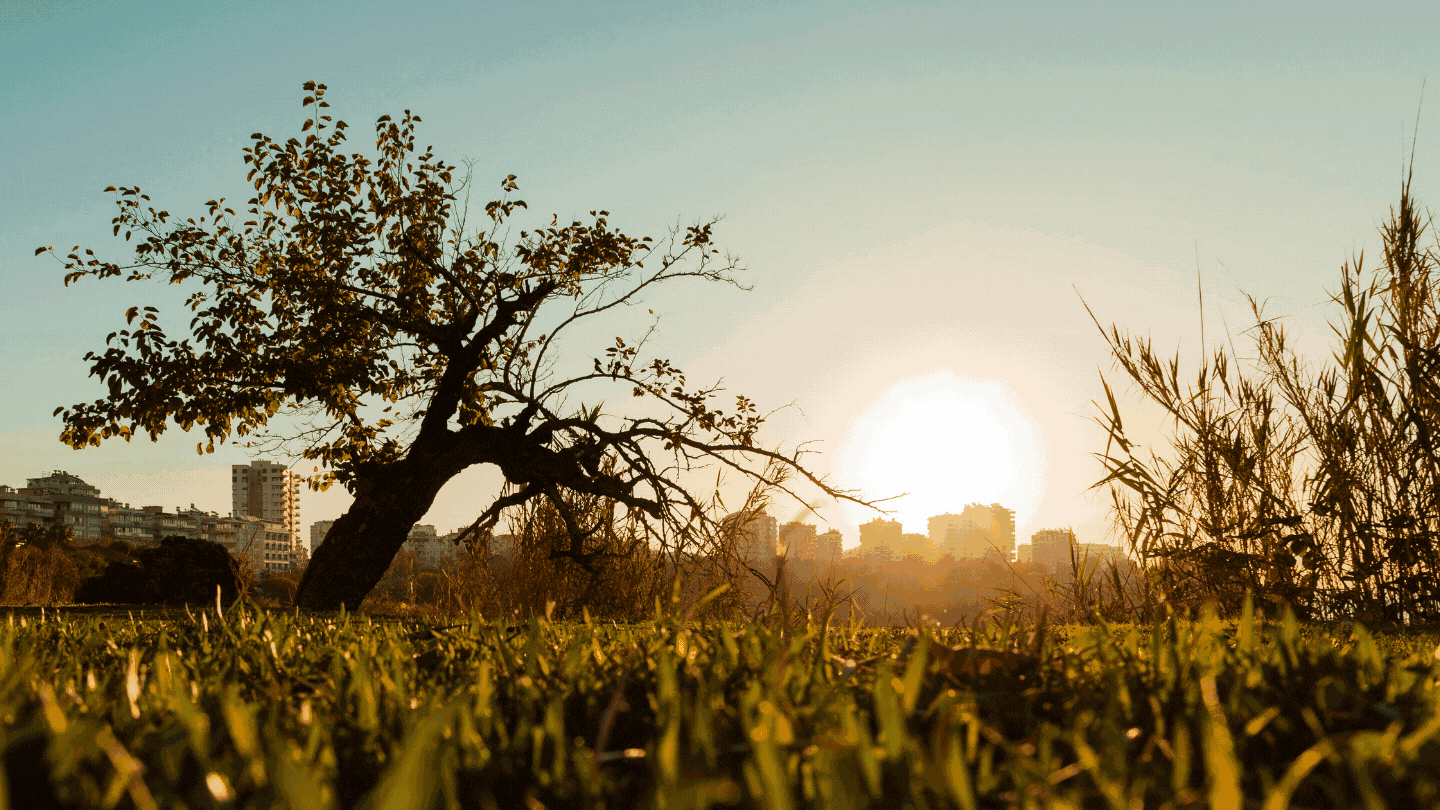
The CitiesWithNature Action Platform is aligned with the 2030 Action Targets in the post-2020 Global Biodiversity Framework, and makes it easy for cities to share their commitments, set their own targets, track their progress, and see how their actions compare with other cities in their country, and globally. It also helps cities gather information on how they contribute to their countries’ National Biodiversity Strategies and Action Plans, and can support national reporting to the UN CBD.
With more than 80% of global Gross Domestic Product (GDP) generated in cities and more than half of global GDP estimated to be dependent on nature, it is clear that cities have a critical role to play in ensuring nature is restored and protected. Local and subnational governments have the power to integrate nature into the way cities work, through policy reform, advocacy and on-the-ground interventions. Topics covered by the Action Platform include everything from nature-based solutions, ecosystem restoration and conservation, to biodiversity mainstreaming, financing and circular economy.
"Cities are on the frontline of the challenges we face as far as #biodiversity is concerned."
— UN Biodiversity (@UNBiodiversity) March 24, 2022
At the Geneva Meetings, @UNBiodiversity's David Ainsworth spoke to @ICLEICBC's Ingrid Coetzee about the #CitiesWithNature Action Platform and more!
➡️https://t.co/rhqE9Rc0Vk#Post2020 pic.twitter.com/tPSxoTvENG
By joining CitiesWithNature and using the Action Platform, cities across the world can commit ambitious actions that contribute to national and global biodiversity and nature goals, and easily track their achievements individually and collectively.
It is fitting that the Action Platform is opening to coincide with Earth Hour, as a catalyst for urgent change to shape our future,
~ Kobie Brand, Global Director of ICLEI’s City Biodiversity Centre Tweet

Momentum is growing for a strong new decision on the role of cities and subnational governments in the world's biodiversity plans and actions until 2030.
As the Geneva resumed meeting on the Convention on Biological Diversity (CBD) is ongoing, ICLEI, a major city network involved closely in the negotiations, and the Geneva Cities Hub, a platform fostering local and regional governments and their networks’ participation in multilateral diplomacy, have organized an informal meeting today at the Villa Rigot to gain support for a proposed renewed decision of Decision X/22. This Decision adopted in 2010, made the CBD the only multilateral environmental agreement with a consistent 10-year plan of action for engaging subnational governments, cities and other local authorities. The Edinburgh Process, of which ICLEI was a key partner, resulted in the Edinburgh Declaration. This Declaration expresses the ambitions of subnational governments and cities and calls for a renewed decision and plan of action. UK has supported this call and submitted a draft decision text and renewed plan of action as main co-sponsor, which has resulted in a draft recommendation (CBD/SBI/3/CRP.8).
Read the draft Plan of Action on Subnational Governments, Cities and Other Local Authorities for Biodiversity (2021-2030) here.
ICLEI and the Geneva Cities Hub call upon parties to support the adoption of CBD/SBI/3/CRP.8 as a result of this preparatory work. “We need the active participation and contributions of local and subnational governments to support State Parties in achieving successful implementation of the global and national biodiversity targets”, said Ingrid Coetzee, on behalf of ICLEI.
“We’re glad that we provided space for relevant persons to meet (preferably in person!) and move things forward together. We hope that the draft decision will be adopted by CBD Parties so that local and regional governments may be fully involved in the global debate on biodiversity”, said Kamelia Kemileva, Co-Director of the Geneva Cities Hub.
This news story was first published on 17 March on https://www.genevacitieshub.org/en/engaging-subnational-governments-cities-and-other-local-authorities-on-biodiversity-matters/
Photo by Mathew Schwartz on Unsplash
At the Geneva meetings in March ahead of the UN Biodiversity Summit (COP15) later this year, the local and subnational governments major group delivered a strong statement at the Joint Opening Plenary Session of OEWG-3, SBSTTA 24 & SBI-3.
The resumed sessions of the twenty-fourth meeting of the Subsidiary Body on Scientific, Technical and Technological Advice (SBSTTA 24), the third meeting of the Subsidiary Body on Implementation (SBI 3) and the third meeting of the Open-ended Working Group on the Post-2020 Global Biodiversity Framework (WG2020-3), are taking place 14-29 March 2022 in Geneva, Switzerland. Read more about the Geneva meetings here.
Local & Subnational Governments Major Group Statement read by Jean Lemire on 14 March 2022
Honourable Chairs, Co-chairs and distinguished delegates,
I address you on behalf of ICLEI – Local Governments for Sustainability, the Advisory Committee on Subnational Governments and Biodiversity – coordinated by Regions4 and the Government of Québec, the Group of Leading Subnational Governments toward the Aichi Biodiversity Targets, the European Committee of the Regions, and the Edinburgh Process Partners.
As the local and subnational governments major group, we would like to refer to the three bodies that will be in session during this negotiation meeting.
Firstly, for the Open-ended working group, we wholeheartedly welcome the mentions to local and subnational governments throughout the GBF. Our constituency can, and will, contribute to the 21 targets of the GBF. Accordingly, we strongly suggest adding a definition of the “whole of government” approach in the Glossary to ensure that harmonization between levels of government and across government is included. We must clarify that it covers all levels of governments in a vertical multi-level approach. We also ask for the reintegration of Nature-Based Solutions into the GBF. In that matter, the UNEA recently adopted a definition of NBS that could be valuable for CBD. The UNEA and IUCN’s definition demonstrates that NBS can have tremendous benefits for biodiversity and people. It is our responsibility to forge a definition that will limit the possibilities for negative impacts on biodiversity.
Secondly, for the SBI, we strongly advise Parties to “adopt” the CRP8 on the engagement with subnational governments, cities and other local authorities to enhance the implementation of the GBF as a whole of government approach. It aims at renewing the previous decision made by Parties at COP-10. Local and subnational governments are already taking actions on biodiversity per their competencies and priorities. This will optimize our actions and allow their contribution to the national and global targets. It will also allow for a more comprehensive and systematic reporting, including through the CitiesWithNature and RegionsWithNature platforms. We published the INF/DOC/45 and now ask the Parties to adopt the plan of action during the Geneva meeting.
Thirdly, for the SBSTTA, we reiterate that it is essential to include local and subnational governments in the official monitoring and reporting framework of the GBF. All indicators must include our constituency for our initiatives to be considered in the national and global targets.
We look forward to discussing these points further and suggesting how local and subnational governments can contribute to the GBF.
Thank you.
Honorables présidents, coprésidents et distingués délégués,
Je m’adresse à vous au nom d’ICLEI, du Comité consultatif sur les gouvernements infranationaux pour la biodiversité – coordonné par Regions4 et le gouvernement du Québec, du Groupe des GoLS, du Comité européen des régions et de l’ensemble des partenaires du processus d’Édimbourg.
En tant que groupe des gouvernements locaux et infranationaux, nous souhaitons faire référence aux trois rencontres concernées par cette ronde de négociation.
Tout d’abord, pour le groupe de travail à composition non limitée, nous saluons de tout cœur les mentions faites aux gouvernements locaux et subnationaux dans l’ensemble du cadre mondial. Notre groupe peut contribuer, et contribuera, aux 21 cibles du cadre mondial. En conséquence, nous suggérons fortement d’ajouter une définition de l’approche “whole of government” dans le glossaire afin de s’assurer que l’harmonisation entre les niveaux de gouvernement est incluse. Nous devons préciser qu’elle couvre non seulement tous les gouvernements dans une approche d’intégration horizontale, mais également toutes les échelles de gouvernements – soit locale, infranationale et nationale – et ce, dans une approche verticale. Nous demandons également la réintégration des solutions fondées sur la nature dans le cadre mondial. À cet égard, l’UNEA a récemment adopté une définition des solutions fondées sur la nature qui pourrait être utile aux travaux de la Convention. La définition de l’UNEA et de l’UICN démontre que les solutions fondées sur la nature peuvent avoir des avantages considérables pour la biodiversité et les personnes. Il est de notre responsabilité de forger une définition qui limitera les possibilités d’impacts négatifs sur la biodiversité.
Deuxièmement, pour le SBI, nous demandons aux Parties d'”adopter” officiellement le document « CRP8 » sur le nouveau plan d’action des les gouvernements subnationaux, des villes et des autres autorités locales, afin d’améliorer la mise en œuvre du cadre et sa « whole of government approach ». Il vise à renouveler la décision précédente X/22, prise par les Parties lors de la COP-10. Les gouvernements locaux et subnationaux prennent déjà des mesures en faveur de la biodiversité en fonction de leurs compétences et de leurs priorités. Cela optimisera nos actions et permettra leur contribution aux objectifs nationaux et mondiaux. Cela permettra également d’établir des rapports plus complets et systématiques, notamment par le biais des plateformes CitiesWithNature et RegionsWithNature. Nous avons publié le document INF/DOC/45 et demandons maintenant aux Parties d’adopter le plan d’action lors de la réunion de Genève.
Troisièmement, pour le SBSTTA, nous réitérons qu’il est essentiel d’inclure les gouvernements locaux et subnationaux dans le cadre officiel de surveillance et de rapportage du prochain cadre mondial. Tous les indicateurs doivent inclure nos niveaux de gouvernance pour que nos initiatives soient prises en compte dans les objectifs nationaux et mondiaux.
Nous sommes impatients de discuter de ces points plus avant et de suggérer comment les gouvernements locaux et subnationaux peuvent contribuer au prochain cadre mondial.
Merci beaucoup!
Delivered by Kobie Brand, – Kobie Brand, Deputy Secretary General: ICLEI
The famed author, Fyodor Dostoevsky, once wrote that “every blade of grass, every insect, ant, and golden bee, all so amazingly know their path.”
It seems that, unfortunately, human beings may be the only element of nature deflecting from this natural path, with consequences and challenges that are shaping our future in challenging ways we did not foresee.
The complex, systemic socio-economic and environmental challenges we are facing nowadays – such as food security, climate change, water security, human health, disaster risk, human-induced species losses, ecosystem stresses and growing economic disparities – all however, still have solutions. And nature provides the opportunity for healing humanity’s relationship with Planet Earth – and yes, indeed nature is part of our cities and very much part of these solutions.
Nature is not only green landscapes, rivers, seashores, mountains, forests, and all that can be seen in a distant vista when one leaves the city. Nature is very much part of our urban environment – providing us and all living organisms with essential daily needs. And nature is not only found in our urban parks and gardens, it is literally all around us, in the very air we breathe, in the flight of every tiny insect and in the breakfast, lunch or dinner you and I will consume today.
Too often still, urban development takes place uncontrolled, forcing nature out of our cities or depleting our green corridors, stripping them from providing the services we so easily take for granted for our very survival. The opposite approach – integrating nature deeply into urban planning – allows both nature and urban communities to thrive together.
Nature and natural processes could instead guide urban planning and design and we can implement green urban policies which provide us with the instruments to reconnect with nature and also make our local communities more resilient to other challenges such as climate change, droughts and flooding, heat island effects and air pollution. Both people and nature benefit when the natural environment in and around cities is valued, cared for, healthy and sustainable.
Rich biodiverse ecosystems in and around our cities improve their liveability and the quality of life for all, but can particularly make a very significant and immediate difference for our most vulnerable populations who are already living on the edge, suffering hardest from the consequences of climate change, water stresses, quality and reliable food supply and air pollution.
There are plenty of great examples where nature is incorporated into good urban development. We know that local authorities have the tools and technologies to mainstream green infrastructure which in turn protects against extreme weather, support urban gardens to strengthen food security, increase green and blue spaces, improving quality of life for residents, and creating popular, safe and accessible recreation areas.
ICLEI member cities boast many and varied successful examples of building cities WITH nature. Stuttgart (Germany) has used regulatory policies and incentives to bring nature back into the city and created ventilation corridors to enable fresh air to sweep down from the hills surrounding the city. They also have over 2 million square metres of living green rooftops that absorb pollutants and reduce excess heat.
Shenzhen (China) is recognised as a pioneering low-impact development model because of its approach to stormwater management. Their main sports centre is equipped with a green roof, rain gardens and permeable pavement capable of capturing over 60% of annual rainfall. There are so many unique and innovative examples of working WITH nature to build the city we want for today and for tomorrow.
ICLEI, together with partners such as IUCN, WWF, UNEP and many others is successfully providing cities large and small with a global initiative called CitiesWithNature. Through CitiesWithNature, local and subnational governments are able to enhance the potential of nature to provide essential ecosystem services and solutions for the overall health of humans and for thriving robust natural habitats within and around our urban areas. Here, at CitiesWithNature, cities and regions can engage, connect, learn, share, act, and inspire each other to work WITH nature, protect, enhance and restore biodiversity – the very web of life we all depend on.
CitiesWithNature brings together over 200 cities across the globe, including Barcelona, Campinas, Rio de Janeiro, Medellin, Los Angeles, London, Merida, Tirana, Edmonton, Malmö, Cape Town, Dar es Salaam, Kochi, Montreal, Melbourne and many other leading local governments.
Among the many benefits and instruments that CitiesWithNature provides is the Nature Pathway, which guides cities on a journey of exploration and inspiration, where they can share with, and learn from, other cities. Along this journey, cities can show their commitments and ambitions towards incorporating nature’s benefits into city policy, planning and decision-making processes and implementation.
The year 2022 and the years ahead are crucial for the environment, with high-level events and conferences scheduled, which we hope will re-energise bold and ambitious international cooperation and new bolder collective action – also in our cities.
The United Nations Biodiversity Conference, COP15, represents an opportunity to transform humanity’s relationship with nature. The Kunming Declaration, as a result of the CBD COP 15, Part 1, is clearly voicing it by saying: “Putting biodiversity on a path to recovery is a defining challenge of this decade and it requires strong political momentum to develop, adopt and implement an ambitious and transformative post-2020 Global Biodiversity Framework.”
To reap the optimal benefits from such nature-based development interventions, all levels of government along with our urban communities will need to take hands and bring these efforts to the scale we need. And it can be done, if the will is there. Look at Freetown in Sierra Leone, where the city is busy planting and mapping and meticulously caring for hundreds of thousands of trees. The ambition is to plant 1 million trees in and around that one city alone! Bold leadership and whole of society approaches are what the world needs right now to restore our broken relationship with nature.
ICLEI, through its programmes, initiatives, projects and partners is fully committed to this. And we warmly invite all of you who are not yet part of the fast growing CitiesWithNature initiative to join us today! It is free and easy to join. Together, we can.
How cities can contribute
Wetlands are our most powerful ecosystems to combat climate risk, yet they are among the most threatened ecosystems and more than a quarter of wetland species globally, are threatened with extinction.
The Ramsar Convention is an intergovernmental treaty that provides the framework for national action and international cooperation for the conservation of wetlands. In total, 172 countries are signatories of the Ramsar Convention and agree to work towards wise use of all their wetlands, designate suitable wetlands as Wetlands of International Importance, known as Ramsar sites, and cooperate internationally on transboundary wetlands. Globally, there are 2 435 Ramsar Sites, covering 254,685,425 ha.
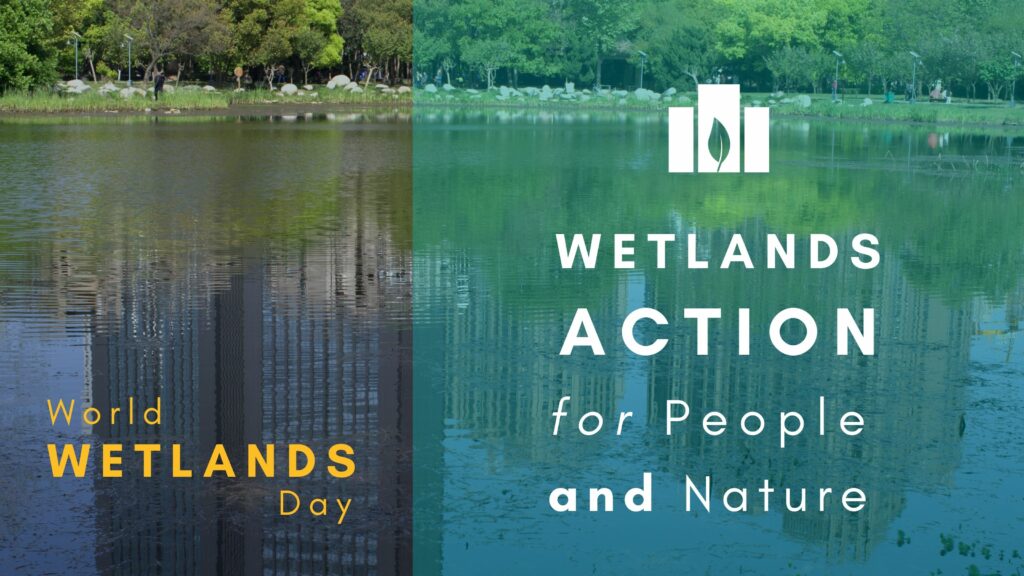
Wetlands offer significant and irreplaceable benefits to people in cities. They can enhance urban quality of life by the multitude of benefits they provide and can address certain urban problems. Wetlands sustain ground water and regulate soil moisture, support biodiversity, regulate floods, regulate climate by cooling cities, and retain contamination and nutrients. Property owners, value proximity to wetlands in urban areas, and studies have also shown positive values for recreation and commercial fishing.
Urban wetlands are precious assets and therefore should be integrated into the development, spatial and management plans of towns and cities.
Recognising the important role of cities in protecting and enhancing the benefits from urban wetlands, the Convention recently introduced a Wetland City accreditation scheme (Resolution XII.10 of 2015). This voluntary scheme provides an opportunity for cities that value their natural and human-made wetlands to gain international recognition and positive publicity for their efforts. The Wetland City Accreditation scheme will encourage cities to highlight and strengthen the positive relationship with their wetlands, with emphasis on creating public awareness of wetland benefits, incorporation of wetland protection into municipal planning and decision-making, and promoting wetland benefits for local people. This scheme provides positive branding opportunities for cities that demonstrate strong and positive relationships with their wetlands.
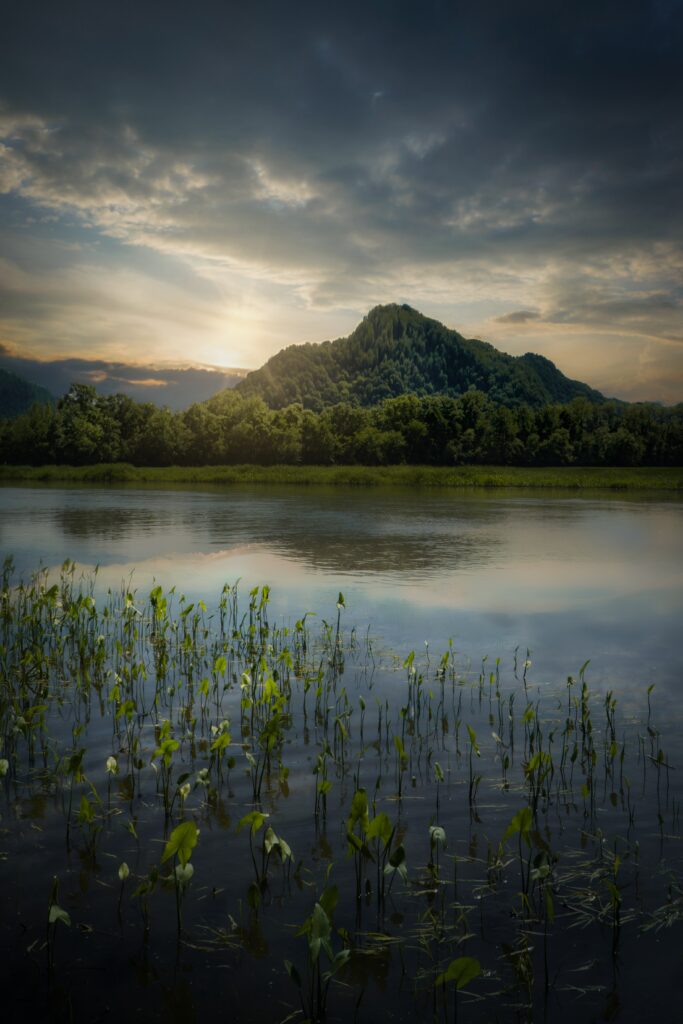
Detailed criteria for city accreditation are listed in Resolution XII.10 (under Featured Documents on the Ramsar web page). For the first time, during COP13, the Ramsar Convention recognized 18 cities that have taken exceptional steps to safeguard their urban wetlands. These pioneer cities received Ramsar Wetland City Accreditation and will serve as examples and inspire purposeful actions for other cities towards sustainable urbanization.
The 18 accredited cities are:
- China: Changde, Changshu, Dongying, Haerbin, Haikou, Yinchuan
- France: Amiens, Courteranges, Pont Audemer, Saint Omer
- Hungary: Lakes by Tata
- Republic of Korea: Changnyeong, Inje, Jeju, Suncheon
- Madagascar: Mitsinjo
- Sri Lanka: Colombo
- Tunisia: Ghar el Melh
The second round of Ramsar wetland cities, currently under consideration, will be announced during the upcoming Standing Committee meeting scheduled for May 2022, to receive their award at COP14 scheduled for November 2022. The Ramsar Wetland Cities Independent Advisory Committee (IAC) reviews the Wetland City Accreditation applications and reports its decision to the Standing Committee. The Committee also coordinates the development of new draft resolutions for the city accreditation scheme. ICLEI currently serves as the co-chair of the IAC together with Austria.
Now is the time for action
and greater investment in the world's wetlands

City and regional governments can look forward to exciting new offerings on the CitiesWithNature and RegionsWithNature platforms, including global insights, tools to develop local solutions, and new ways to connect with each other and partner organisations.
This year, forward-thinking governments from cities and regions will continue looking for opportunities to work with nature to build thriving communities. The CitiesWithNature and RegionsWithNature platforms will help them to do this, with new tools, partners, capabilities and resources.
2022 is a make-or-break year for the living world. The course for the next decade will be charted at the UN Biodiversity Summit (COP15 Part 2), scheduled to take place later this year in Kunming, China. The UN Decade on Ecosystem Restoration will also get into full swing after its successful launch last year. As always, local and regional governments can rely on ICLEI, one of the founding partners of CitiesWithNature and RegionsWithNature, to amplify their voices and connect them with the most important insights and partners.
On the online CitiesWithNature platform, cities of all sizes and levels of progress in working with nature are connecting, sharing their experiences and actions, and benefiting from access to a range of partner organisations and practical tools. Recently, New York was the 200th city to join CitiesWithNature, joining London, São Paulo, Cape Town, Barcelona, Istanbul, Montreal, Melbourne and other cities from around the globe.
Your city can also join CitiesWithNature, for free, here: https://citieswithnature.org/ and receive the monthly CitiesWithNature Buzz newsletter.
Several exciting new features, tools and partnerships are planned for CitiesWithNature and RegionsWithNature to contribute to this anticipated super year for biodiversity.
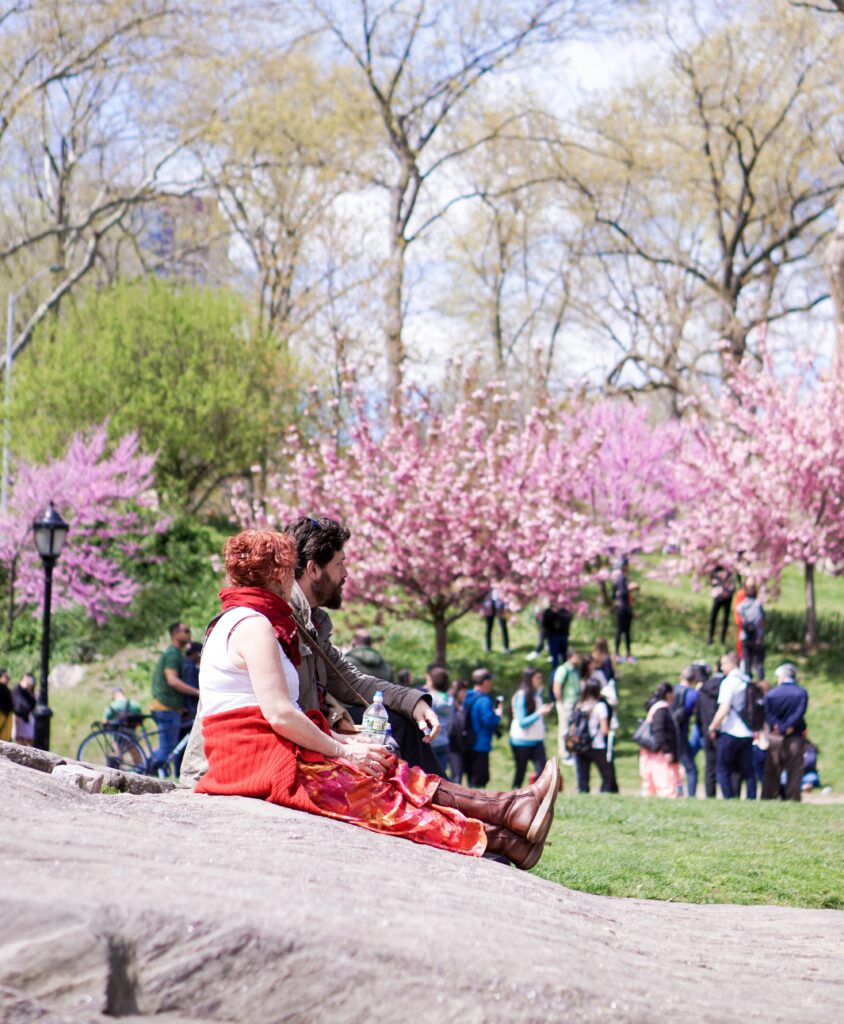
Action Platform to launch ahead of UN Biodiversity COP
On the Action Platform you will be able to showcase your city’s actions and plans, understand how they contribute to global nature goals and easily track your city’s achievements. The Action Platform is recognised as the place where cities will monitor and report on their voluntary commitments to national and global biodiversity targets, by the Convention on Biological Diversity (CBD) in the renewed Plan of Action on Subnational Governments, Cities and Other Local Authorities for Biodiversity (2021-2030).
Get practical advice from the Nature Pathway and new Guides on topics like resilience and invasive alien species
In the first months of this year, the Nature Pathway will relaunch with a brand new, intuitive interface. It will offer a comprehensive roadmap to integrate nature throughout your city’s plans, policies and operations. A new feature, Guides, will also be launched, providing expert guidance on how your city can tackle specific topics, such as enhancing resilience by working with nature, or managing invasive alien species.
Connect with leading partner organisations
The latest partner organizations to join the CitiesWithNature partnership initiative, are the National Park City Foundation – which aims to make cities greener, healthier, wilder and fairer places to live – and 8 80 Cities – which brings citizens together to enhance mobility and public space for more vibrant, healthy, and equitable communities. CitiesWithNature provides cities with a single place to link with leading international organisations such as WWF, Cities4Forests and UNEP. Keep an eye out for announcements of other new partners.
Get the tools, resources and research findings you need
The Tools & Resources Hub already provides access to cutting-edge tools and resources on nature-based solutions, ecosystem restoration and green infrastructure. This year, a Knowledge & Research Hub will also be launched: an online “meeting place” and resource library for practitioners, researchers and other experts, both public and private, to engage and contribute to emerging practices and scientific thinking on nature in and around cities.
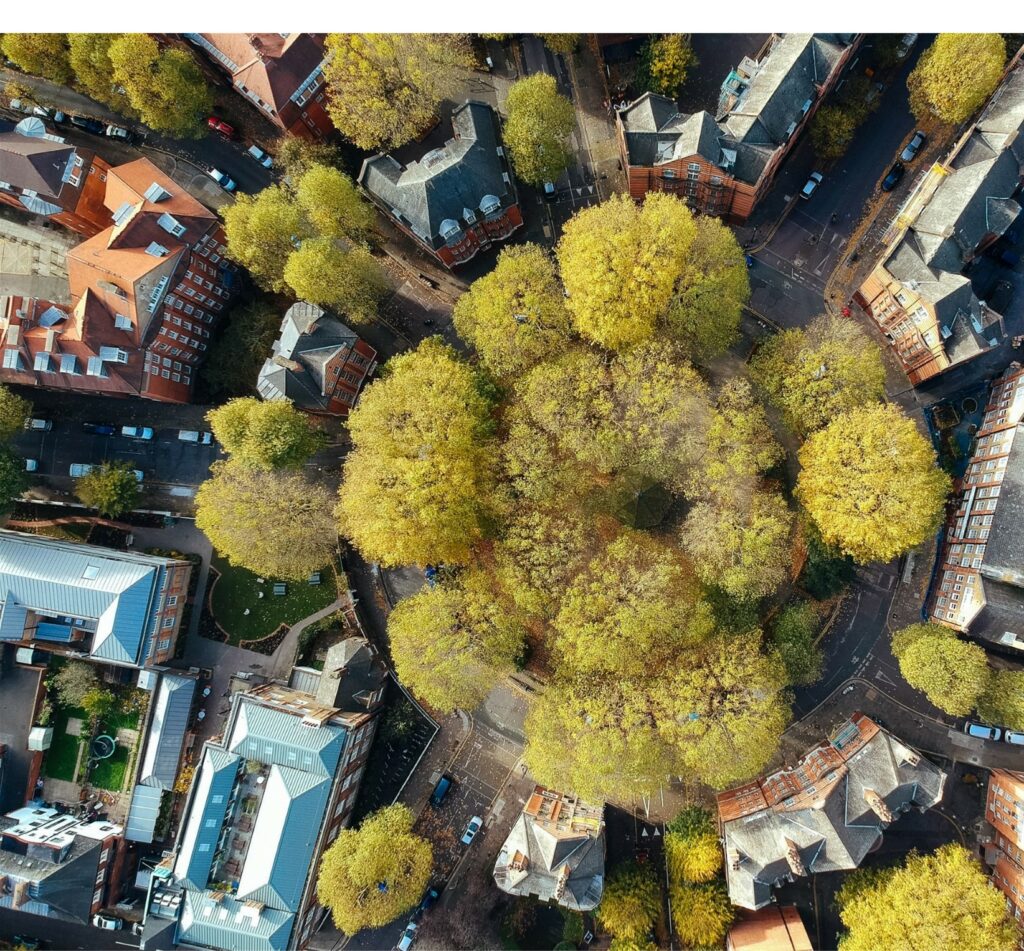
Training and an online interface for the City Biodiversity Index
Also known as the Singapore Index on Cities’ Biodiversity (SI), this self-assessment tool helps cities to evaluate and monitor the progress of their biodiversity conservation efforts against their own individual baselines. This facilitates capacity building, master-planning, priority setting and budgeting for biodiversity. Training sessions on the tool will be offered this year by Singapore NParks, CitiesWithNature and WWF, with dates to be announced soon. CitiesWithNature is also developing an online version of the City Biodiversity Index this year, which is currently only available as an offline handbook.
Inspire and be inspired on the Community Hub
The CitiesWithNature Community Hub will be co-created by people from cities around the world via social media. It will be open and freely available to anyone from any city to share their experiences, photos, video clips and stories about urban nature.
RegionsWithNature - A dedicated space for regional governments and their partners
Following its launch in October 2021 at the Daring Cities global forum, RegionsWithNature, will grow this year to a fully-fledged platform for regional governments, offering an Action Platform, tools and other features. Founding regional governments that have already thrown their weight behind RegionsWithNature include Yucatan in Mexico, São Paulo in Brazil, Goa in India, Comunidad de Madrid in Spain, the Western Cape in South Africa and Quebec in Canada. RegionsWithNature is being developed by founding partners ICLEI, Regions4, IUCN, the Group of Leading Subnational Governments toward Aichi Biodiversity Targets (GoLS) and others. Regional governments can look forward to the first meeting opportunities of RegionsWithNature in the first quarter of 2021. Join RegionsWithNature here: https://regionswithnature.org/
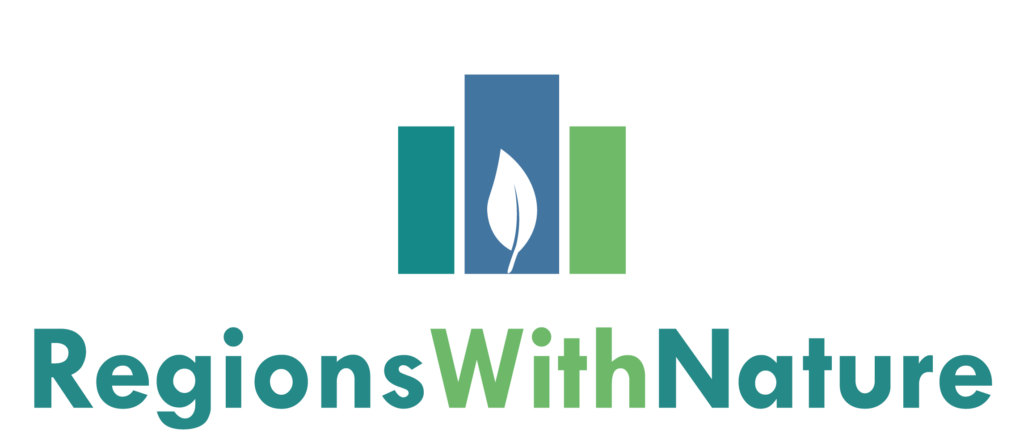

New York City has become the 200th city to join CitiesWithNature, a global partnership initiative that strengthens collective action and impact to protect biodiversity and reconnect urban communities with nature. New York is taking up this leading position alongside London, Los Angeles, São Paulo, Cape Town, Barcelona, Montreal and Melbourne.
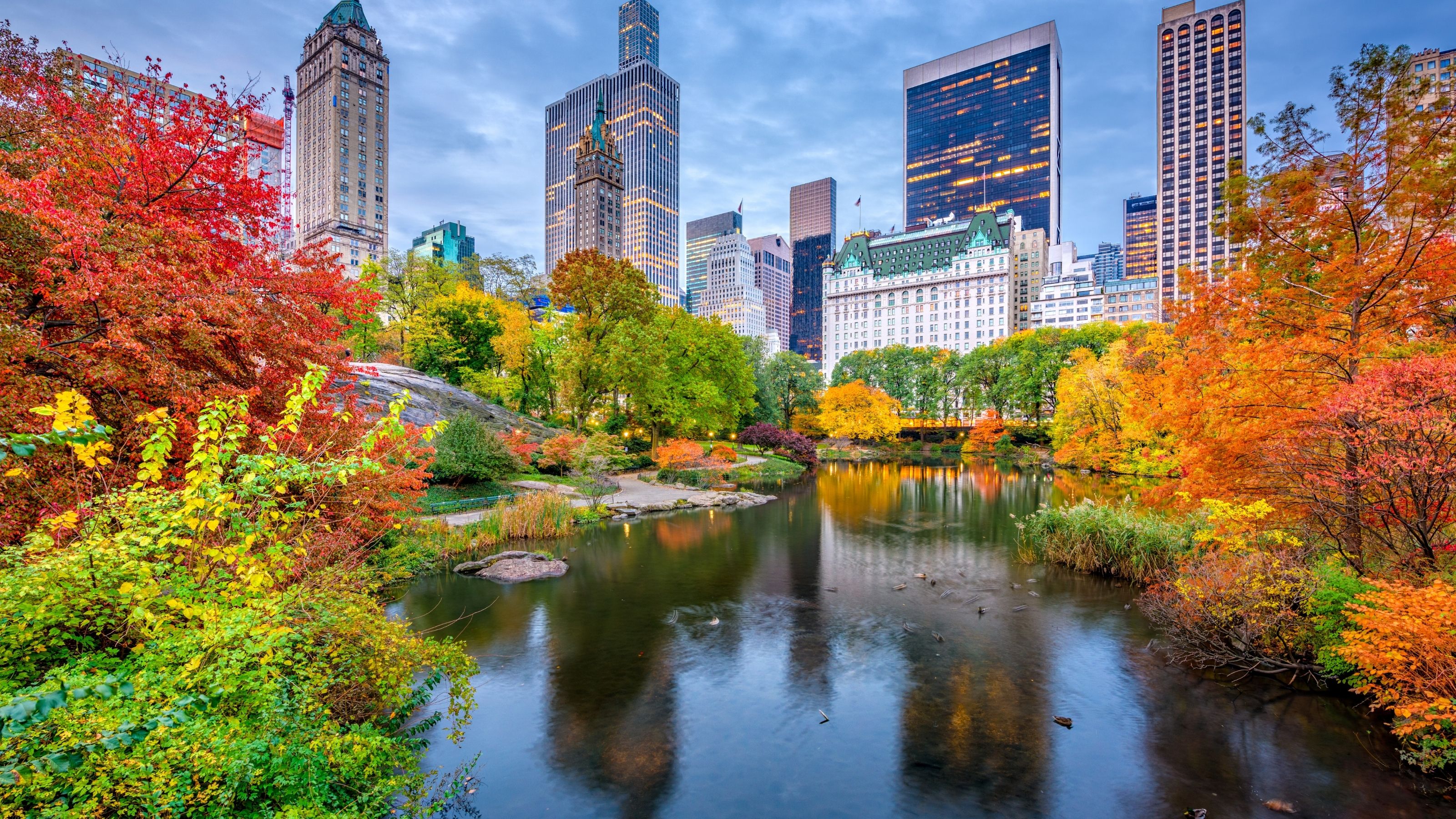
This comes in the wake of the recent United Nations climate change summit, COP26, where nature was prominent on the agenda like never before, and which emphasised the critical importance of addressing the nature and climate crises together.
The escalating decline in biodiversity and associated multiple ecosystem goods and services has implications for the quality of life of current and future generations, adversely limiting our ability to combat poverty, hunger and climate change. As we enter the Decade on Ecosystem Restoration, scientists estimate that around one million species already face extinction, many within decades, unless action is taken to reduce the intensity of drivers of biodiversity loss. (1)
“We’ve been working tirelessly across all five boroughs to bring cleaner air, water, and new greenspaces to all New Yorkers,” said New York City Mayor, Bill de Blasio. “As a result, wildlife is once again flourishing, as we build a more environmentally friendly, sustainable city. We are proud to join CitiesWithNature and continue this work with other global leaders. New York City is proof that you can create climate-friendly, biodiverse cities that support the well-being of all of our residents, including those with feathers, fins and fur.”
The Big Apple has been growing ever greener for many years. It has long been a leader on climate action in particular, implementing bold programmes and advocating for the vital role cities have to play in combating climate change. This experience, coupled with New York City’s renowned energy and innovation, is set to inspire many other cities through the CitiesWithNature initiative.
Join CitiesWithNature
New research (2) shows that hundreds of millions of people across the world are concerned that the natural world is under threat, and that number is growing. Citizens are increasingly demanding action from local and subnational government leaders. With more than 80% of global GDP generated in cities (3) and more than half of global GDP estimated to be dependent on nature (4), it is clear that cities have a critical role to play in ensuring nature is restored and protected.
“CitiesWithNature are true leaders, understanding that there is no future without nature. Our urban leaders are taking bold, decisive action to protect biodiversity and restore ecosystems to counteract climate change and ensure human health and wellbeing. We are proud to call New York City one of our CitiesWithNature and congratulate them for stepping up to strengthen collective action for nature and ensure transformative change,” said Kobie Brand, Global Director of ICLEI Cities Biodiversity Center.
On the online CitiesWithNature platform, cities of all sizes and levels of progress in working with nature, from around the world are connecting, sharing their experiences and actions, and benefiting from access to a range of partner organisations and practical tools.
“As ICLEI’s Global Ambassador for Local Biodiversity, I congratulate all of the cities that have joined CitiesWithNature, leading up to New York City being the 200th city,” said Valérie Plante, Mayor of Montreal. “The City of Montreal is proud to be part of CitiesWithNature, as we pursue our ecological transition to counter climate change by boosting public transit, expanding bike lanes and planting half a million more trees over the next decade. I encourage other cities around the world to join CitiesWithNature and share their commitments and actions through the Action Platform.”
“London joined CitiesWithNature as the 100th Pioneer City, leading by example on conserving and restoring urban nature for the benefit of people and wildlife,” said London’s Deputy Mayor for Environment and Energy, Shirley Rodrigues. “The Mayor has made huge strides in increasing and protecting the capital’s green spaces, securing London’s status as the world’s first National Park City. Over £20 million has been invested to help make London greener, including creating and improving over 400 hectares of green space and planting over 350,000 trees. Congratulations to New York City on becoming the 200th city. Through collaboration we can ensure we take the action needed to restore nature in our cities.”
- https://ipbes.net/sites/default/files/2020-02/ipbes_global_assessment_report_summary_for_policymakers_en.pdf
- https://wwfint.awsassets.panda.org/downloads/an_ecowakening_measuring_awareness__engagement_and_action_for_nature_final_may_2021__.pdf
- https://www.worldbank.org/404_response.htm
- https://www.sitra.fi/en/articles/the-circular-economy-is-key-to-halting-biodiversity-loss/
Urban food gardens, measuring ecological performance in cities, and San Antonio in Texas. What do all these things have in common? They feature in the newest edition of the CitiesWithNature Buzz, of course! Don’t miss the latest roundup of urban nature news, opportunities and events from around the world in the November edition. Click here to read it!
Also read about how more green spaces in European cities could avoid many deaths, the latest Tools & Resources on CitiesWithNature, and the contributions of regional governments at COP26. Have you already joined CitiesWithNature as a city or partner organisation? Feature your urban nature news in the Buzz by submitting a short piece and a link via this Google Form.
You can also delve into past issues of the BUZZ where you will find various valuable reports and resources on Nature-based Solutions, urban biodiversity and more. See the past issues here.

